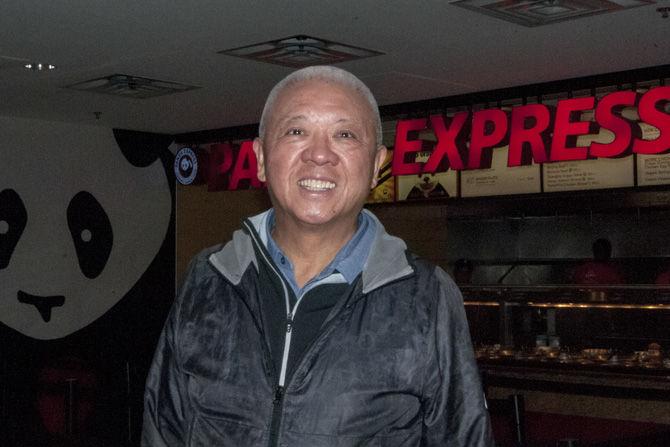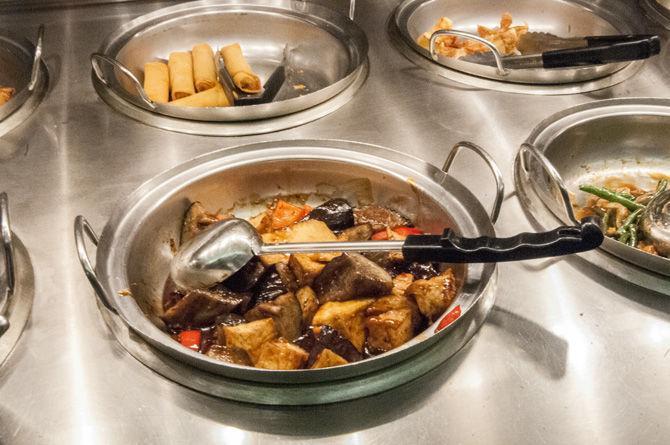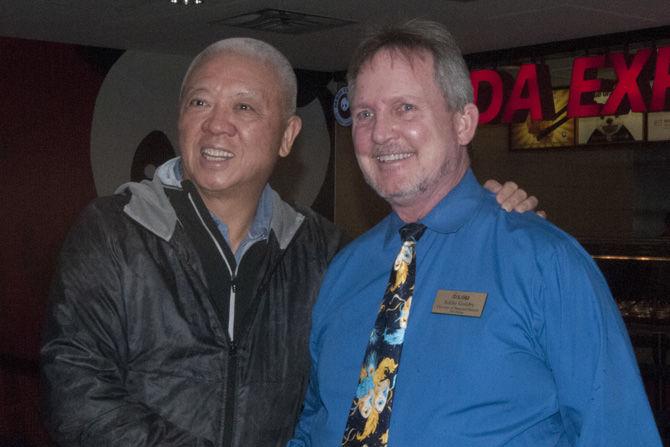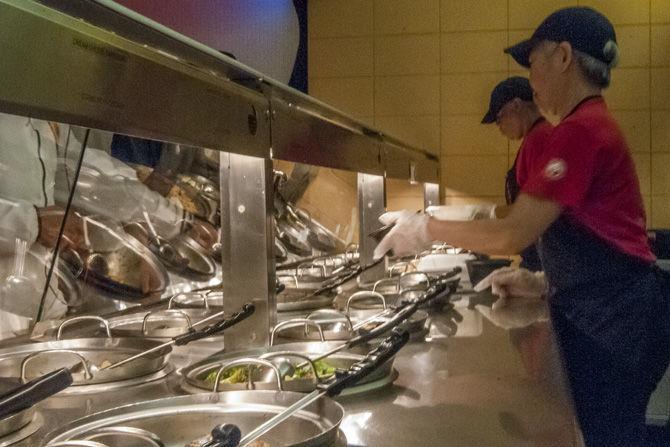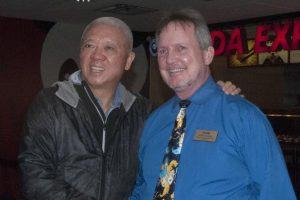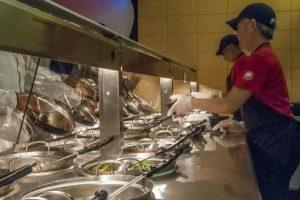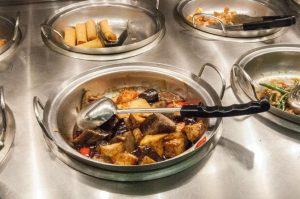Panda Express co-founder and co-CEO Andrew Cherng visited his company’s LSU Student Union location Wednesday morning, inspecting the kitchen and shaking hands with line cooks preparing meals for students.
Cherng was in Baton Rouge for the Raising Cane’s Operators Conference after Cherng’s Panda Restaurant Group inked a deal with the Baton Rouge-based company to franchise the chicken finger restaurant in Hawaii and Alaska.
Cherng’s desire to diversify himself and his business practices led to his partnership with Raising Cane’s Chicken Fingers, he said. Cherng said he has known Raising Cane’s founder and CEO Todd Graves for nearly 10 years, and the companies’ franchise deal has been developing for about two years.
Panda Restaurant Group has plans to open Raising Cane’s locations in both Hawaii and Alaska before year’s end, with the goal of having half a dozen locations open in two years. Several sites are currently being scouted and developed simultaneously to jump start the partnership, Cherng said.
Cherng said he and Graves have great chemistry and the franchise deal is a positive opportunity for both businesses. There’s room for each to learn from one another, and Cherng is interested in exploring Raising Cane’s limited focus and seeing how simplification could potentially benefit his chains, he said.
Cherng said he felt it was important to visit the front lines of Panda Express because the employees are the foundation of the company’s success.
“This is it. This is where it all happens. This is why we’re here,” the Asian-dining mogul said.
Cherng and his wife Peggy Cherng, the company’s co-founder and co-CEO, opened the first Panda Express in Glendale, California in 1983. The fast food chain was inspired by a full-service Asian restaurant, Panda Inn, which Andrew Cherng operated with his father, according to the company website.
Despite pursuing mathematics in college, Andrew Cherng said he always wanted to be in business. As a teenager in Japan, his father worked as a chef while many of Andrew Cherng’s classmates came from families with businesses. The restaurateur said he desired the same level of financial stability and comfort for himself.
While turning a profit is crucial, Andrew Cherng said caring for his employees and operating on a long-term growth model is equally important. The Panda Restaurant Group views itself as a human development company, he said, and believes helping employees balance health, happiness and personal development is the key to building business.
“One of the most important things is to be happy,” Andrew Cherng said. “To be happy, it’s not about what’s in it for you. To be happy is about having a purpose in life and that purpose is always really related to helping other people, to be part of other people’s success.”
Andy Gaudiano, senior director of operations for LSU Dining, said Andrew Cherng’s philosophy is reflected in his desire to personally visit his business’ locations when possible.
“It was definitely a morale booster for the staff,” Gaudiano said. “It’s one thing to hear about this guy, but another to shake his hand and have a short conversation with him.”
In addition to caring for people, Andrew Cherng noted the importance of continuing to learn and grow as a key to his success. The businessman said he believes in having a broad knowledge base and avoiding becoming so “dummied down” in one topic that you no longer learn.
The Raising Cane’s deal is just one step toward Andrew Cherng’s goal for continual change and growth, he said.
“I think there’s always a next chapter. It’s the pursuit,” Andrew Cherng said. “When you get bigger, there’s more people to take care of, more systems to build, more things to think about. I don’t think you’ve ever made it. Any time you say you’ve made it, sell the business.”


